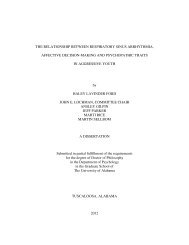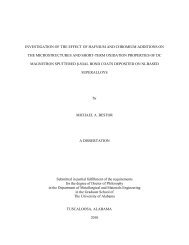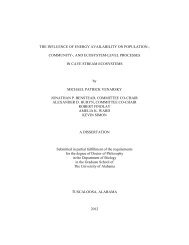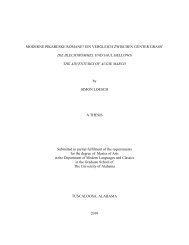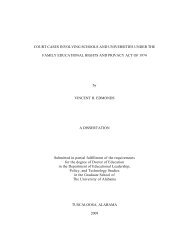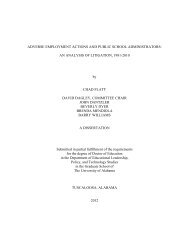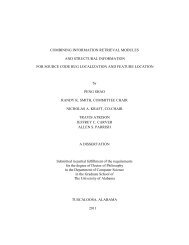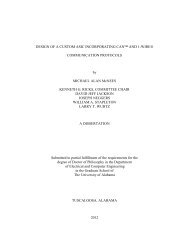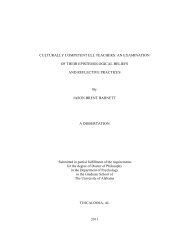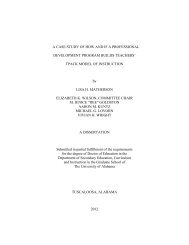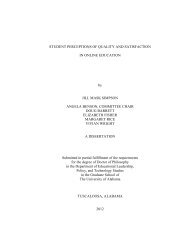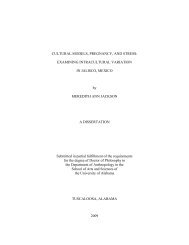Copyright Malvin Porter, Jr. 2010 - acumen - The University of ...
Copyright Malvin Porter, Jr. 2010 - acumen - The University of ...
Copyright Malvin Porter, Jr. 2010 - acumen - The University of ...
You also want an ePaper? Increase the reach of your titles
YUMPU automatically turns print PDFs into web optimized ePapers that Google loves.
Linking Social Support and Bullying<br />
Several studies have linked social support and bullying. One study found that children<br />
who are not involved in bullying perceive greater social support from teachers than do bullies<br />
and that both nonbully/nonvictims and bullies report significantly higher frequencies <strong>of</strong> peer<br />
social support than victims and bully-victims (Malecki & Demaray, 2003). Other studies found<br />
that children who are victimized exhibited low peer acceptance, support, reciprocity, and<br />
friendship (Perren & Alasker, 2006; Perren & Hornung, 2005; Rigby, 2000). <strong>The</strong>se children are<br />
nearly twice as likely as nonvictims to report that they do not have teacher with whom they can<br />
discuss their problems (Furlong & Chung, 1995).<br />
An important way that bullies and victims may differ from children not involved in<br />
bullying is in the amount <strong>of</strong> social support they seek and receive (Conners-Burrow et al., 2009).<br />
Two broad theories help explain the relationship between social support and children’s<br />
functioning have emerged (S. Cohen, Gottlieb, & Underwood, 2000). <strong>The</strong> main effect model<br />
asserts that social support has a positive benefit for improving overall psychological well-being<br />
<strong>of</strong> all children. <strong>The</strong> stress buffering theory asserts that social support benefits children who are at<br />
risk or under stress by buffering them from negative internalizing problems associated with<br />
bullying. <strong>The</strong>se models can be used to explain the role <strong>of</strong> social support in improving QOL/LS in<br />
the lives <strong>of</strong> children who are victimized by bullies (Malecki & Demaray, 2004). Studies have<br />
found that victims and bully/victims generally reported less social support than bullies or<br />
comparison youth (Demaray & Malecki, 2003; Malecki & Demaray, 2004). Conners-Burrow and<br />
colleagues (2009) found that children who were not involved in bullying reported less depression<br />
and more social support than children involved in bullying, and bully/victims were the most at-<br />
risk group. Results indicated that in all four bully status groups, children reported fewer<br />
31



